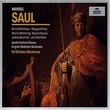| All Artists: Gustav Mahler, Leonard Bernstein, Vienna Philharmonic Orchestra Title: Mahler: Symphony No. 5 Members Wishing: 1 Total Copies: 0 Label: Deutsche Grammophon Release Date: 10/25/1990 Genre: Classical Style: Symphonies Number of Discs: 1 SwapaCD Credits: 1 UPC: 028942360822 |
Search - Gustav Mahler, Leonard Bernstein, Vienna Philharmonic Orchestra :: Mahler: Symphony No. 5
 | Gustav Mahler, Leonard Bernstein, Vienna Philharmonic Orchestra Mahler: Symphony No. 5 Genre: Classical
Mahler's Fifth was one of the pieces Leonard Bernstein owned. This interpretation is broader than the one he recorded with the New York Philharmonic in the early 1960s, but it's little changed in feeling. It is, however, f... more » |
Larger Image |
CD DetailsSynopsis
Amazon.com essential recording Mahler's Fifth was one of the pieces Leonard Bernstein owned. This interpretation is broader than the one he recorded with the New York Philharmonic in the early 1960s, but it's little changed in feeling. It is, however, far more polished and a good deal more persuasive. The recording, like all of Bernstein's later Mahler cycle, was made live; here, he and the Vienna Philharmonic give a gripping performance full of telling nuance, intensely expressive yet thoroughly controlled. It's a reading both Dionysiac and "Bachic"--as in J. S. Bach, not Bacchus--one in which the impetuous energy of the score is transmitted to the fullest degree, but not at the expense of the extraordinary (for Mahler) contrapuntal detail. Most remarkable of all, perhaps, is Bernstein's sureness of touch, his ability to realize the many little expressive gestures that no longer merely draw attention to themselves the way they used to, but add up to something miraculous. The Philharmonic players, with him all the way, contribute many wonderful touches, especially the strings. The recording, made not in Vienna but in Frankfurt's Alte Oper, is solid and has remarkable impact. While the bass is a bit diffuse and the sound stage not the clearest, the image is reasonably detailed and well balanced, the atmosphere good. --Ted Libbey Similar CDs
Similarly Requested CDs
|
CD ReviewsMust be heard, even if not liked George Grella | Brooklyn | 08/16/2001 (5 out of 5 stars) "This is one of the important Mahler recordings, even if it may not be the best. The reason is that this is the essence of the pairing of Mahler and Bernstein. The conductor's willful, extremely personal way with this music is not to everyone's liking, and that includes dedicated Mahlerians, but anyone who cares about the composer must be aware of Bernstein's approach, and this is the one disc that encapsulates it best.From the opening entrance of the full orchestra, it's clear that this is Bernstein. The weight, the exaggeration, the expression and sense of tragedy are unmistakable. Likewise in the scherzo which is bright, brilliant, and at times just on the verge of losing control. The adagietto is, of course, Bernstein and Mahler to the nth degree, powerfully emotive, like it or not. The orchestra plays brilliantly, the sound is incredible full and alive. Appreciate it, if not enjoy it - and I would recommend the equally wonderful and very different live recording by Abbado and the BPO, which is a perfect counterweight." Bernstein's DG Recording Indelibly Marks You George Grella | 10/22/1999 (5 out of 5 stars) "I immediately bought this recording after hearing Pierre Boulez's performance of the Fifth on the radio. Why, then, did I buy Lenny? I went to Bernstein first for two reasons: for the most part, I am nearly always satisified by him. Second, I was well aware of his historic effort to reintroduce Mahler into the repertoire after decades of wrongful neglect. At first, I did not know what to make of Lenny's version of the Fifth. The Boulez I heard was so precisely technical and straightforward that I could not reconcile it with all the power, idiosyncracy, and heart-on-your-sleeve emotion of Bernstein. Finally, after about a third or fourth hearing, I had an epiphany- -I finally knew that I loved this recording and would never be satisfied by another. I was indelibly stamped and will always recommend it to others. Just as well, I have been told that Lenny's DG version of the Fifth as well as Barbirolli's EMI recording typically elicit such strong reactions. Of whom you prefer oftentimes relies on which one you heard first.In fact, I have gotten my once skeptical friend into Mahler after leasing him this recording. This is a fine testament to this recording and Mahler because my friend already had Mahler's Fourth but did not care for it; thus he concluded that Mahler was not worth the money. Now, not only does he believe in Mahler, but I, myself, now have all of Mahler's symphonies." A Real "Adagietto" Vatsug | Boston, MA | 02/09/2005 (5 out of 5 stars) "This recording of the 5th is undoubtedly the most true to Mahler's score and intention, especially in the case of the "Adagietto". It is wonderfully presented here. What puzzles me is the complete and utter misconception about the tempo of this beautiful movement. Most seem to think "Adagietto" means "a bit faster than Adagio", when it reality the title has NOTHING to do with tempo. In Italian, it simply means "little adagio", which refers to the small scale/length of the movement. If you want to know the tempo of this movement, look no further than the score where it is clearly marked - Sehr langsam (very slow). How on earth would any competent conductor take this marking, made by Mahler, to mean anything other than "very slow"? Did Mahler make a mistake? Did Mahler not understand the meaning of Sehr langsam? It seems that many do not trust Mahler to mark his own tempos - which is odd, because Gustav Mahler was the epitome of precise and in-depth markings. On top of it all, the second measure (where the 1st violins enter) is marked "molto rit, espressivo" (slow up alot, expressively). So not only are you "very slow" to begin with, but you get even slower in just the 2nd measure. There are other passages in which every single note has a tenuto (accent). How can you play these notes and passages effectively if you are trampling them in a nice Andante (like the Zander recording)? If you take the time to look for all the cues Mahler is giving you, and have a real sense of Mahler and his compositions, there is no way to speed up this beautiful little Adagio.
To the reviewer (Modée) who said "...the early tradition of interpretations indicate that a swift take is what Mahler probably had in mind, despite the 'sehr langsam'...", I can give you a direct quote from Mahler himself on musical tradition - "Tradition ist Schlamperei" (tradition is sloppiness). Take Mahler for what the score says. So why do conductors, some of them very famous, take the tempo so fast? Because they are trying to set their "interpretations" apart from the rest. If you want to hear Mahler 5 performed as he intended, this is the recording for you. If you want to hear a conductor pushing his own agenda onto the music, buy another (and yes, this is the exact opposite of what you usually hear about a Bernstein recording - for those who see the irony, no further explanation is needed)." |

 Track Listings (5) - Disc #1
Track Listings (5) - Disc #1











